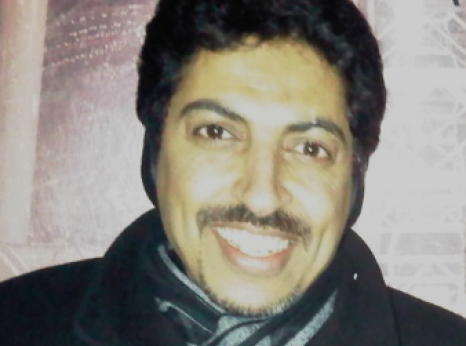Bahrain: Health Concern For Prisoner Of Conscience

Prominent human rights defender and prisoner of conscience Abdulhadi Al-Khawaja, aged 61, co-founded both the Gulf Centre for Human Rights (GCHR) and the Bahrain Center for Human Rights (BCHR). Until early 2011, he worked as MENA Protection Coordinator for the human rights group Frontline Defenders. He also previously took part in an Amnesty International fact-finding visit to Iraq in 2003 and is a member of the International Advisory Network of the Business and Human Rights Resource Centre. He is a peaceful advocate of human rights and the recipient of several human rights awards, including the Dignity - World without Torture Award which he received in October 2013. Most recently, in 2022, he obtained the prestigious Martin Ennals Award for Human Rights Defenders. Abdulhadi Al-Khawaja is serving a life sentence in Jaw prison for his role in for leading peaceful protests during the 2011 popular uprising in Bahrain.
Between 11 and 15 March 2023, Bahrain hosted the 146th Inter-Parliamentary Union (IPU) Assembly in Manama, an annual gathering of parliament members from around the world. Parliamentarians from Denmark, Sweden, Ireland, Iceland, the Netherlands, Finland and Norway called for the release of Abdulhadi Al-Khawaja. The Danish delegation’s request to visit him in prison was ignored.
On 6 November 2022, during a call to his daughters, Abdulhadi Al-Khawaja said that he was facing a number of separate new trials. On 3 November 2022, his first trial began in his absence before the Second Lower Criminal Court for allegedly breaking a plastic chair in November 2021 and insulting a police officer in Jaw prison after being denied phone calls to his daughters who live abroad. On 21 November 2022, his second trial began on charges of insulting a public servant. The case relates to an incident on 30 March 2022, when Abdulhadi Al-Khawaja protested against the normalization deal with Israel (Abraham Accords) and told a prison officer “You are a dirty and unclean person. You have a way of treating people like animals”.
On 28 November 2022, the court convicted and fined Abdulhadi Al-Khawaja in both cases. The two cases were taken before the Second High Criminal Court of Appeal. On 29 December 2022, the court postponed to 5 January 2023 its hearing in the first case in which he was convicted and fined 60 Bahraini dinars (equivalent to 160 US dollars) for breaking a chair and insulting a public servant. The court also ruled that Abdulhadi Al-Khawaja did not have the right to appeal his conviction and 100 Bahraini dinars (equivalent to 265 US dollars) fine in relation to the second case for insulting a public servant.
Abdulhadi Al-Khawaja was not allowed to attend any of the courts proceedings.
On 5 January 2023 his lawyer handed the head of the court a letter in which Abdulhadi Al-Khawaja said that he had instructed his lawyer to withdraw from the session in the event that he was unable to visit him prior to the hearing session or if he was not permitted to attend. Indeed, Abdulhadi Al-Khawaja was not brought to court, his lawyer withdrew from the court’s session, and the judge upheld the conviction and fine. The next day, Abdulhadi Al-Khawaja called his daughters and told them that prison guards had lured him to the prison administration building under the pretence to have a call with his lawyer, only to be taken to the prison guards’ room to face the public servant he was convicted of insulting. Abdulhadi Al-Khawaja resisted being forced into the room and started yelling and shouting slogans. On 8 January, he was informed that he would not be allowed to have calls with his lawyer anymore. On 6 March 2023, Abdulhadi Al-Khawaja was finally granted a visit by his lawyer.
On 15 December 2022, the European Parliament adopted an urgent resolution highlighting Abdulhadi Al-Khawaja’s case and those of other political prisoners and calling for his release. On 27 December 2022, he met his lawyer for the first time in prison.
In May 2012, the UN Working Group on Arbitrary Detention considered that Abdulhadi Al-Khawaja’s detention was arbitrary as it resulted from his exercise of the rights to freedom of expression, association and peaceful assembly; and called for his immediate release and an enforceable right to compensation.